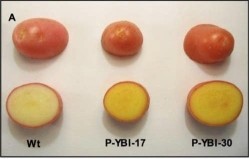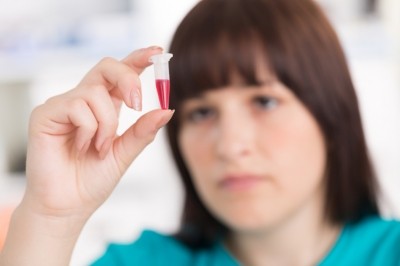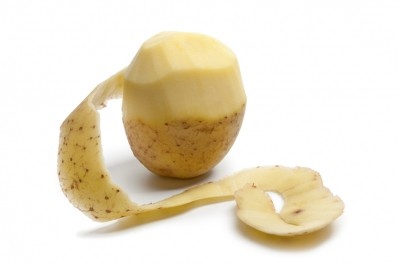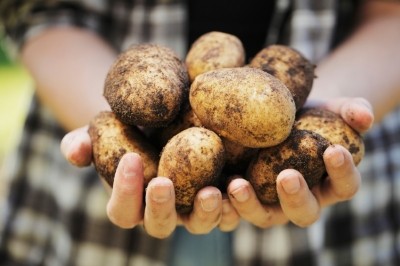Golden potato could cut vitamin deficiencies in developing countries: Study

Scientists have created a metabolically engineered potato with enhanced nutrient content that could potentially help fight vitamin A deficiency-related blindness in countries where inhabitants depend on the vegetable as a major dietary component.
The raw ‘golden’ potatoes contained over 100 times greater concentrations of provitamin A carotenoids than wild type potatoes. Additionally, vitamin E and lutein were 15 times and 3 times higher in the experimental tubers, reported the research team led by the Ohio State University, Columbus, in collaboration with Casaccia Research Centre, Rome.
Importantly, the golden potatoes retained over 82% of their vitamin A, vitamin E and lutein content when boiled for 25-30 minutes.
“These results suggest that a 150 gram serving of boiled golden potatoes has the potential to contribute 42% and 23% of the daily requirement of retinol activity equivalents (RAE) [vitamin A], as well as 34 and 17% of the daily vitamin E requirement for children and women of reproductive age, respectively,” wrote study leader Professor Mark Failla.
"These golden tubers have far more vitamin A and vitamin E than white potatoes, and that could make a significant difference in certain populations where deficiencies - and related diseases - are common," he commented.
Significance
Potato is a staple food in numerous African, South American and Asian countries with a high prevalence of vitamin A and vitamin E deficiencies. Therefore, there is much interest in increasing the amount of health promoting compounds in the crop, the scientists explained.
"More than 800,000 people depend on the potato as their main source of energy and many of these individuals are not consuming adequate amounts of these vital nutrients," commented Failla.
"This golden potato would be a way to provide a much more nutritious food that people are eating many times a week, or even several times a day," he said.
Golden potato synthesis
The golden potato, which is not commercially available, was metabolically engineered in Italy by a team that collaborated with Failla on the study
The researchers transformed wild Desiree type potatoes using bacterial genes that code enzymes responsible for catalysing carotenoid biosynthesis. This technique produced transgenic golden tubers with high concentrations of provitamin A carotenoids, which are converted by enzymes into vitamin A that the body can use.
Simulated digestion
The scientists created a simulated digestive system in the laboratory that mimicked processes taking place in the mouth, stomach and gut. They also measured the bioaccessibility of the boiled potatoes using human intestinal cells. The results showed absorption levels of 14-20% for vitamin A and lutein and 53% for vitamin E.
"We ground up boiled golden potato and mimicked the conditions of these digestive organs to determine how much of these fat-soluble nutrients became biologically available," he said.
Genetic modification
The scientists emphasised that achieving the improved nutritional properties of golden potatoes was only possible through modification of plant genes in the laboratory. They acknowledged that some people may be opposed to genetic engineering, but drew attention to the objectives of their research.
"We have to keep an open mind, remembering that nutritional requirements differ in different countries and that our final goal is to provide safe, nutritious food to 9 billion people worldwide," concluded study co-author Giovanni Giuliano from the Casaccia Research Centre in Rome.
Source: PLOS ONE
Published online: 8th November 2017. DOI: 10.1371/journal.pone.0187102
“Potential of golden potatoes to improve vitamin A and vitamin E status in developing countries”
Authors: Chureeporn Chitchumroonchokchai, Gianfranco Diretto, Bruno Parisi, Giovanni Giuliano , Mark L. Failla













